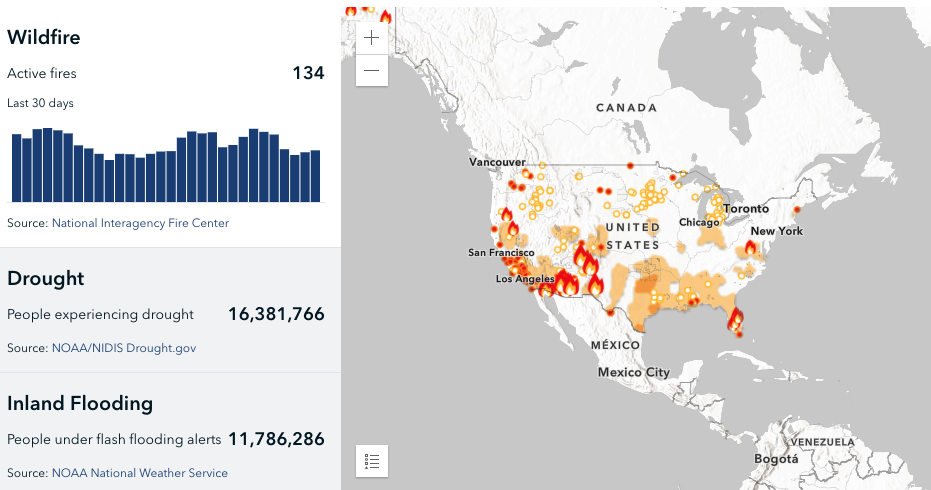U.S. Global Change Research Program (USGCRP), U.S. Federal Geographic Data Committee (FGDC), Department of the Interior (DOI), National Oceanic and Atmospheric Administration (NOAA), 2022

Climate Mapping for Resilience and Adaptation (CMRA) helps people assess their local exposure to climate-related hazards. Understanding exposure is the first step in determining which people, property, and infrastructure could be injured or damaged by climate-related hazards, and what options might be available to protect these assets.
Research shows that every $1 invested in proactive climate hazard mitigation can save $6-$12 in post-disaster recovery costs. Thus, CMRA also helps communities identify potential federal funding opportunities that can be used to plan and implement climate resilience plans.
CMRA is particularly recommended for people working with community organizations and in local, Tribal, state, and Federal government offices who wish to pursue grant funds available through the Bipartisan Infrastructure Law and/or other Federal grant funds to support equitable climate resilience building projects.
CMRA is designed to work with the U.S. Climate Resilience Toolkit. It integrates decision-relevant information from across the U.S. Federal government, including:
– Climate maps and data — both historical observations and future projections;
– Non-climate data — including building codes and economic justice and social vulnerability information; and
– Federal grant funding opportunities.



